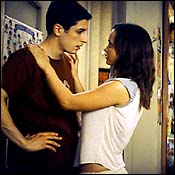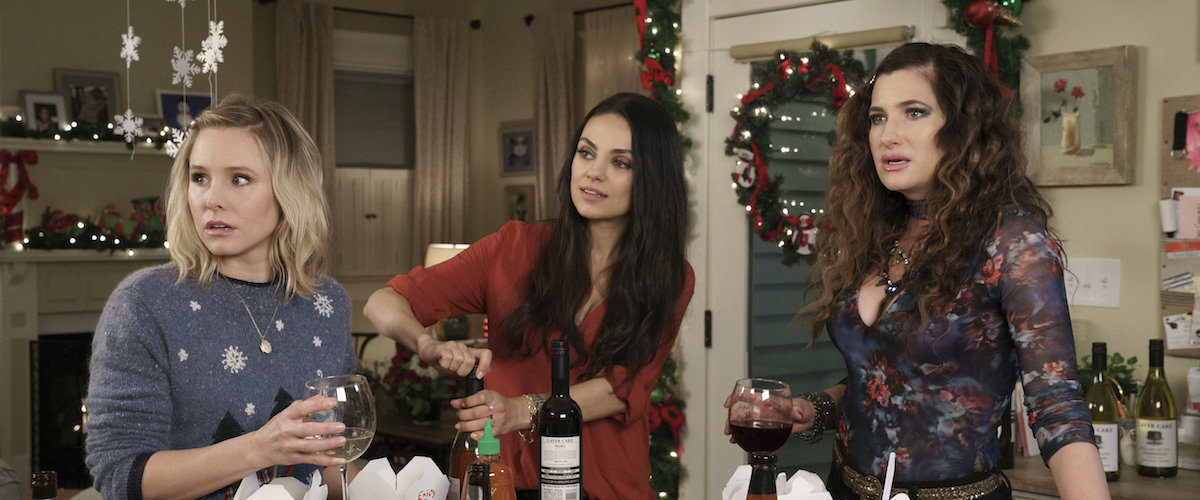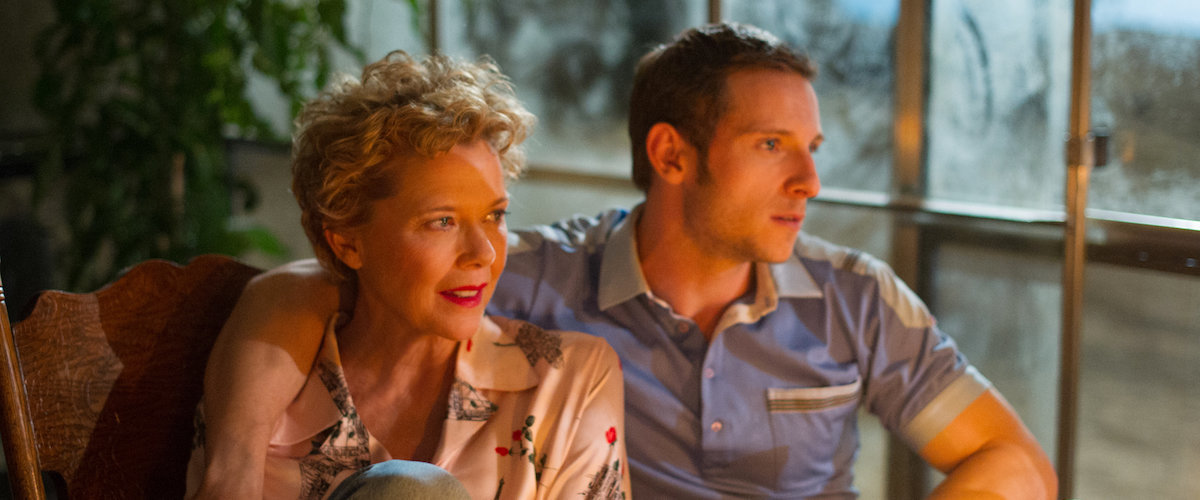
Directed by: Clint Eastwood
Starring: Spencer Stone, Anthony Sadler, Alek Skarlatos, Jenna Fischer, Judy Greer, Ray Corasani, Jaleel White
There is a riveting movie to be made of the August 2015 real-life heroic story of three Americans who thwarted a Moroccan shooter aboard a train bound for Paris. This is not that movie. The 15:17 to Paris spends roughly ten total screen minutes on the heroic sequence itself and the rest of the 90-minute running time on next-to-nothingness. These were three ordinary young men thrust into an extraordinary circumstance and lived to tell about it. The movie spends an inordinate amount of time trying to find a gripping backstory for these men which simply isn't there. We are bored out of our skulls waiting for the inevitable main event, which swooshes by so fast you wonder why Eastwood didn't spend at least a bit more screen time on a suspenseful buildup.
We learn nothing about the motives of the would-be shooter. If you want to know anything about him, you will have to Google him. But, we learn more than we will ever need to about the three Americans. The Americans: Spencer Stone, Alek Skarlatos, and Anthony Sadler all play themselves, which isn't lethal in and of itself, but unfortunately the three men are not professional actors and it shows. I'm not saying they should not have appeared in the film, because next to nobody would turn down an opportunity to star in a Clint Eastwood film (or any film), but an acting coach should have been nearby. They have the screen presence of guys on a posted YouTube video. I don't fault the men for that.
In some cases, the hiring of non-professional actors in major roles paid off. Dr. Haing S. Ngor (The Killing Fields) and Harold Russell (The Best Years of Our Lives), both won Best Supporting Actor Oscars. It just doesn't here. But the actors are only part of the reason why Eastwood's film is such a dud. We start at the beginning, in which we meet Spencer, Alek, and Anthony as pre-teens in a Sacramento middle school. Spencer is a rebellious teen with a military fetish who reminded me way too much of Chris Kyle, the late sniper of Eastwood's American Sniper (2014). He wears camouflage shirts everywhere, has a camouflage comforter, and a poster of Full Metal Jacket adorns his bedroom wall; not to mention an arsenal of BB guns which frankly isn't healthy.
Alek is his best friend and the two soon meet Anthony during one of many trips to the principal's office. We meet Spencer's mother (Greer) and Alek's (Fischer), who oddly attend parent-teacher conferences together and the teacher or principal discuss Alek and Spencer as if they were one unit and not two separate individuals. They also storm out in unison when the teacher or principal expel them or promote the use of medication. The principal suggests to Alek's mother that Alek go live with his father because "the Lord says it's what should be done". Alek's mother protests, but in the very next scene, Alek is seen riding off with his dad to live in Oregon. It's the dramatic equivalent of a character in a comedy protesting vehemently when his boss tells him to do something and then, of course, the next scene has the character doing exactly what he said he wouldn't. Then, we have Jaleel White (formerly Steve Urkel) as a history teacher whose appearance drew snickers from the audience in the screening I attended. He is onscreen roughly thirty seconds and does what a lot of teachers in the movies do: They wait until the dismissal bell rings and belt out "there will be a quiz and read chapters 1 through 4 tonight" in vain while the students gather up their things and likely are paying no attention to him. Why don't these teachers explain the homework assignments before the loud, shrill bell goes off?
The moms are given barely any screen time to establish any sort of relationships with their children, while Anthony's home life is not shown at all. We don't know until the final scene that Anthony even has parents. We just thought he journeyed back to Parts Unknown every night. Fast forward a few years and we see Spencer, Alek, and Anthony again attending college. Spencer longs to join the Air Force paratrooper ranks, but he keeps messing up, although he learns jujitsu which will help him immensely in his attempts to take down the train gunman. Alek does a tour of duty in Afghanistan, although puts his mission in danger when he leaves his backpack behind in a village and the group has to go back to retrieve it. Anthony attends college, but we don't see him doing anything except watching college football games and Skyping with his buddies.
In case we forgot the date with destiny will soon arrive, Spencer says at least twice (and I'm paraphrasing) that life has a bigger meaning in store for him. Spencer and Anthony soon book a trek through Europe with the two visiting all of the sights Rome has to offer, take gondolas in Venice, take a ridiculous amount of selfies, party with Alek when they meet up in Amsterdam, and the three then board the train hung over which will soon be terrorized by the gunman. The first part of The 15:17 to Paris plays like a military recruitment film, the second part like a European travelogue. It is terribly dull.
Then, there is the attack itself, which doesn't resonate like it should because (and here is one reason why casting the three men as themselves doesn't work), the men seem to react as if they already knew what was going to happen. It doesn't feel in the moment. Instead, it feels like what it was for them: a recreation of events and for them, there is no way to recapture the emotions of the event itself. There was a fourth person, an Englishman, who supposedly aided the Americans in subduing the gunman, but in the film he barely registers. He is kept off to the side as Spencer chokes the man into unconsciousness while the other two punch and belt the gunman with the butt of a rifle.
The film ends, as in real life, with the French President awarding the three men (and the Englishman) with their highest civilian honor and while the music swells and the President gives his impassioned speech about courage and heroism, the moment is curiously flat. The entire movie is the same way, and while Eastwood's novel approach to casting may have seemed like a good idea at the time, it frankly would've been better if it were given the Hollywood treatment more. There are those who complain that biopics play loose with facts and react with disgust that scenes were embellished or take dramatic license. Well, watch The 15:17 to Paris and tell me the movie couldn't have used a lot of embellishment.










